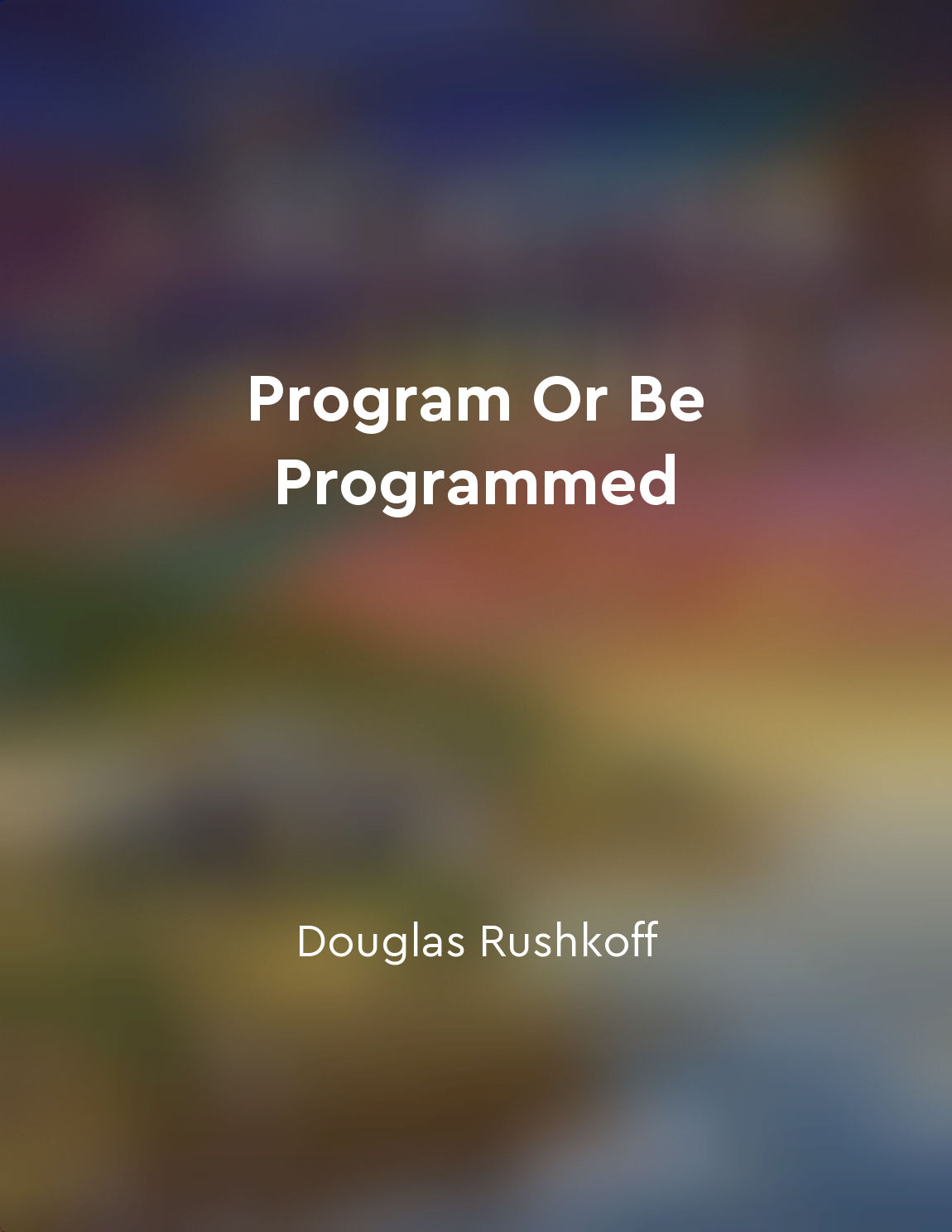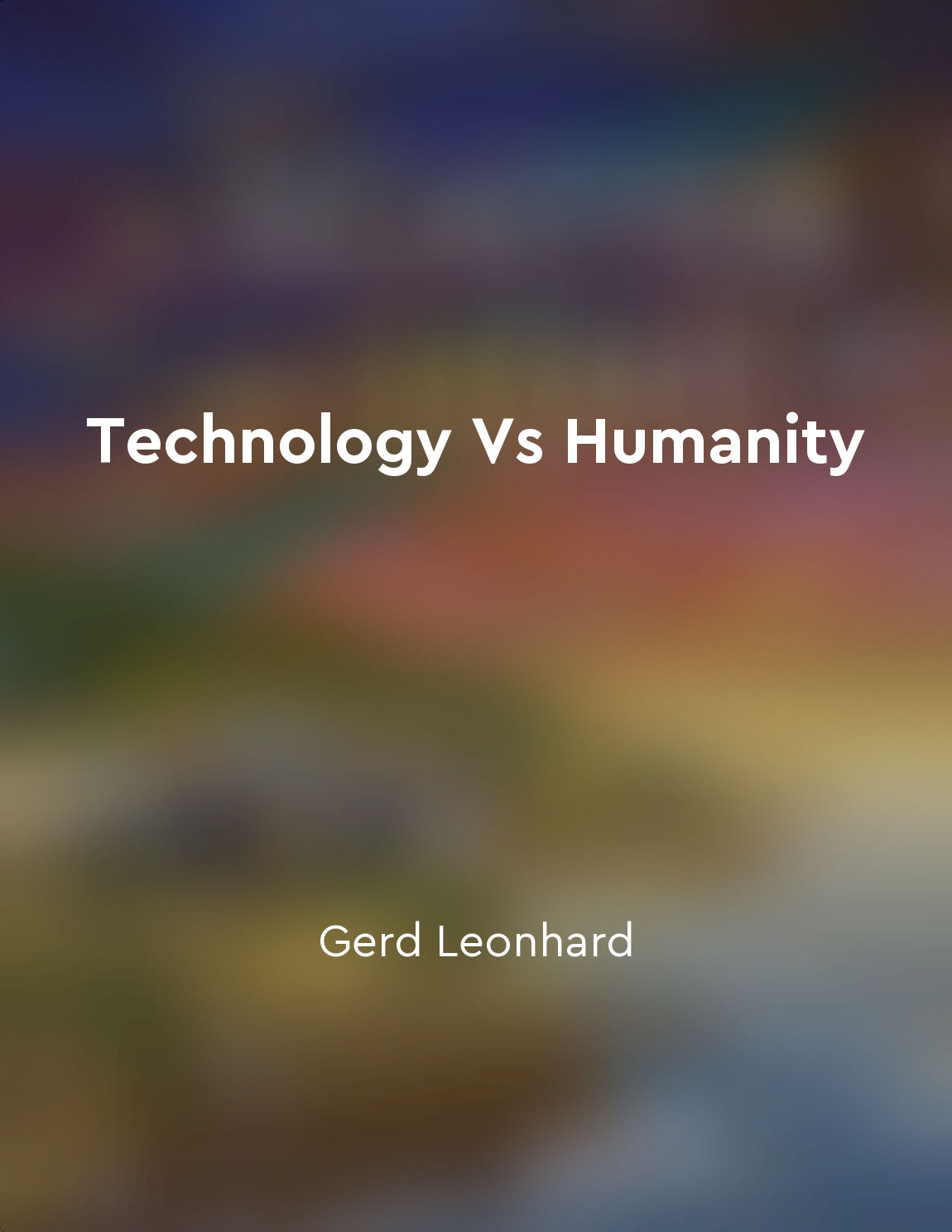The dominance of technology can undermine human creativity from "summary" of Technopoly by Neil Postman
In Technopoly, Neil Postman argues that the relentless advancement and integration of technology in society can have a detrimental effect on human creativity. He suggests that the omnipresence of technology in our lives can lead to a devaluation of creativity and innovation, as technological solutions become the default response to problems and challenges. Postman highlights how technology often emphasizes efficiency and productivity over the more complex and nuanced processes of human creativity. This focus on speed and convenience can stifle the creative process, as individuals are encouraged to prioritize quick and easily replicable solutions over more imaginative and original approaches. Furthermore, Postman warns that the dominance of technology can lead to a loss of individual agency and autonomy in the creative process. As technology becomes increasingly intertwined with our daily lives, there is a risk that humans may become overly reliant on technological tools and devices, diminishing their own creative capacities in the process. Postman also raises concerns about the impact of technology on our ability to think critically and engage in deep, meaningful reflection. In a technologically-driven society, where information is readily available at the touch of a button, there is a danger that individuals may become passive consumers of knowledge rather than active participants in the creative process.- Postman's exploration of the relationship between technology and creativity serves as a cautionary tale about the potential pitfalls of a society that prioritizes technological advancement above all else. By highlighting the ways in which technology can undermine human creativity, Postman encourages readers to critically examine the role of technology in their lives and consider how they can preserve and nurture their own creative capacities in an increasingly technologically-dominated world.
Similar Posts
Creativity is a skill to be honed, not a mystical gift
Creativity is not some rare talent that only a few lucky individuals possess. It is not a mystical gift that one is either born...
Constraints can lead to creative solutions
Constraints are often seen as obstacles to progress. However, in reality, they can actually be the catalyst for innovative thin...
Vertical progress is more important than horizontal progress
Horizontal progress means copying things that work – going from 1 to n. It's easy to copy things that already exist, but it rar...

Follow your own path, even if it means going against the crowd
It's easy to get caught up in the noise of the crowd. We're constantly bombarded with messages telling us what we should do, ho...
Technology can threaten human dignity
Neil Postman explores the idea that technology can pose a threat to human dignity by examining the impact of technological adva...
Technology can devalue traditions and knowledge
In Technopoly, Neil Postman argues that technology has the power to devalue traditions and knowledge. This devaluation occurs b...

People who do not program risk being controlled by those who do
People who do not engage with the processes and languages that shape our digital world are at risk of becoming mere users, subj...
Creative thinking requires a space for divergent thought
Creative thinking is not a straightforward process. It does not follow a linear path from point A to point B. Instead, it invol...

Technology addiction is a real threat
The insidious grip of technology addiction is a real threat that looms over society like a dark cloud, ready to unleash its des...

